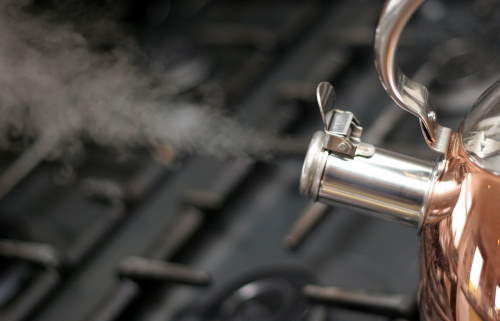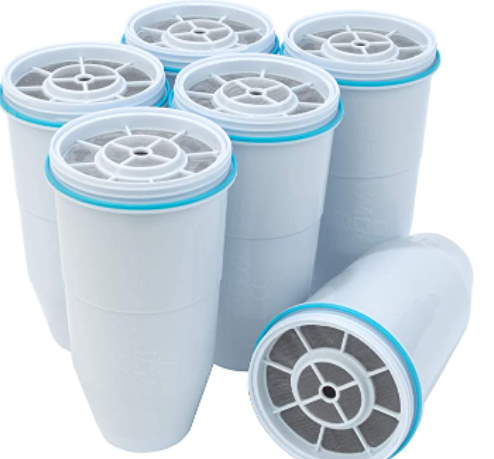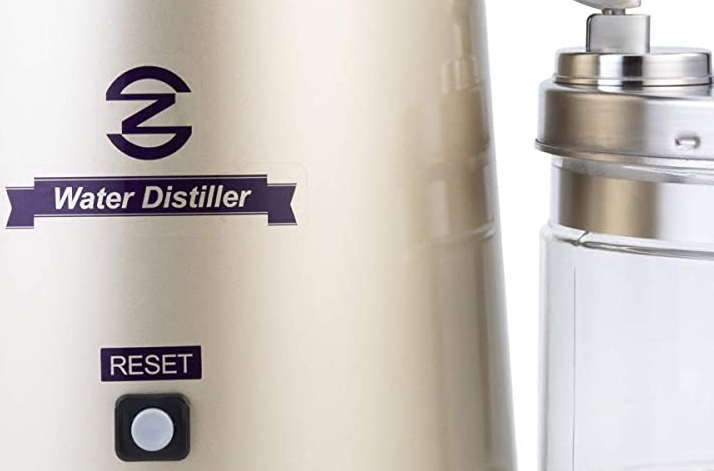Many people ask: what’s the difference between distilled water vs zero water? Let us explain the difference, and introduce how each is made. Read this post to find out what is distilled water and what is zero water.
Most people want to know what is inside each water. And yes, that is the key difference between zero and distilled water. Read this post and learn about this topic.
Distilled water is water that has been boiled and then condensed back into a liquid form. It is free of impurities such as minerals, salts, and other contaminants. It is often used in medical and laboratory settings, in car batteries, and in steam irons.
Zero Water on the other hand is a type of water filtration system that utilizes a five-stage filtration process to remove dissolved solids from water. This removes nearly all of the dissolved solids from the water, including fluoride and chlorine. The filtered water has a pH of 7.0 or higher and is free from bacteria, lead, and other contaminants.
Distilled water vs Zero water
Depending on water usage, we can determine which water is better and why. For drinking, for example, distilled water tastes flat, and zero water tastes crisp. Furthermore, the human body needs minerals found in water. It means that distilled water isn’t a good choice in this case. On the other hand, for laboratory testing purposes, machine operation, etc… distilled water comes in place.
It is impossible to make a clear statement answering which is better – zero water vs distilled water.
Therefore, we are going to explain each, in more detail.
What is distilled water?
Distilled water is produced from the steam of boiling water that’s been cooled and returned back to its liquid state. In general, we find distilled water as the purest water. By using the distilling process, we can rid of all impurities from the water. Furthermore, distilling removes more than 99.9% of the minerals dissolved in water.
What is zero water?
Unlike distilled water, zero water is five-stage filtered water. Zero water filtration uses ion exchange to remove almost 100% of all substances dissolved in water through a process of ion exchange. Therefore, a zero water filtration system removes even the good minerals from water e.g calcium, sodium, and potassium that the human body needs.
How each is produced – zero vs distilled water?
As said before, distilled water is boiled and turned into vapor, then the vapor is condensed back into the water. Unlike distilled water, zero water has produced by a 5-stage ion filtration process.
Important to know: Distilled water has no minerals, and that is the main reason it tastes extremely flat. Furthermore, because distilled water has no minerals it tends to pull the minerals away from whatever is in it. This applies to the human body also, meaning distilled water will pull minerals out of the human body.
Filtering water from faucets, without using ion exchange won’t remove minerals from the water. This means that faucet water filtration keeps all the minerals in the water.
How distilled water is produced?
Distilled water production – Water has been heated to boiling and then cooled as steam after which distilled water is collected. As said before, this process removes all minerals and impurities from the water. Distilled water is pure enough to be used as a solvent in medical or industrial applications.


Water that has been distilled tastes a little bit flat. The distillation process is useful in removing heavy metals, minerals, bacteria, and viruses from the water.
Purification by Distillation
The distillation process is using multiple containers connected with pipes. Water is present in one container that has been heated. The steam is then transferred through the pipes to a new container where the temperature is low compared to the first container. The steam condenses, and new distilled water is collected in the second container.
What happens with impurities and minerals? Well, all the substances from the water, that have a higher boiling point than water don’t evaporate but are left in the first container. Therefore, impurities that have a lower boiling point will still find their way into the first container (distilled water).
It is good to know the potential side effects of drinking distilled water. As said at the beginning of this post, distilled water can leach minerals from the human body, which leads to other health issues. In other words, distilled water is ideal for use in cars, machinery, and medical applications, and not as drinking water – for human consumption.
How Zero water is produced?
Zero-water, as its name suggests, eliminates virtually all substances from the water. After this filtration process is finished, H2O is left behind.
Important to know: The water that comes out from the zero-water filter advertizes as near as H2O. Literally, zero water has zero % of harmful chemicals and other contaminants. It means that Zero-Water filtration removes all the useful minerals also.
Zero water production
Unlike is advertised, Zero Water filters can’t accomplish pure H2O – which is good in our opinion. This makes zero water perfectly safe for human consumption.


Zero Water 5-Stage Filter Removes 99.6% of TDS
The zero water 5-stage filter removes 99.6% of all total dissolved solids (TDS), leaving nothing behind. Taste the difference with refreshing and pure-tasting water with each sip.
Plain water without minerals isn’t safe to drink for some periods of time. The human body, for proper functioning, needs minerals and other elements that can be found in water. Minerals such as calcium and magnesium are critical in the human body. That is why zero water production comes as a better choice than distilled water.
In conclusion
In the context of eliminating impurities, distilled water is way much a better choice. However, if we talk about consuming clean water, the zero water filtration system does that exactly. Water needs to have minerals inside, and other good elements for the human body to work properly. That is why distilled water is used in cars, machinery, and medical applications. On contrary, because it is clean more than enough, distilled water isn’t good as drinking water. A zero water filter is made especially for the purpose, to clean impurities from the tap water, making it safe for consumption. Unlike is advertised, zero water isn’t pure H2O, meaning it has minerals and some other elements that the human body needs.
The five-stage filtration processes ensure that all solid sediments are removed. The handheld meter that zero water comes with will indicate a reading of zero dissolved substances.
Maybe you want to know more about hard water? Also, check some water filters mentioned before AquaBliss filters.
The short answer is they’re not the same. While the Zero water term stands for filtered water, distilled water comes through a whole different (water-steam-condensing) process.
Water Distillation Home Kit


The CO-Z Water Distillation Kit is a great choice for anyone looking to purify their drinking water. It uses a three-stage filtration system to provide clean, pure water. This system includes an activated carbon filter, a sediment filter, and an ultraviolet sterilization filter. The kit also includes an easy-to-use distiller that can make up to 4 liters of water per hour. It is an excellent way to remove contaminants from your drinking water and ensure that you are getting the cleanest and most pure water possible.
A home water distillation kit includes components necessary to make distilled water for drinking, cleaning, or other purposes. This kit generally includes a distiller, a collection container, a filter, tubing, and other components. The distiller boils water and collects the steam, which is then cooled and condensed back into liquid. This liquid is then filtered and collected in the container. The tubing is used to connect the distiller to the container.
Conclusion: Is Zero Water Distilled Water?
No, ZeroWater is not the same as distilled water. Distilled water is made by boiling water and collecting the steam, which is then condensed back into liquid form. This removes virtually all impurities and minerals from the water. ZeroWater filters use a five-stage filtration process to remove most dissolved solids, including salts, lead, mercury, nitrates, and chlorine, from tap water. The result is clean, odorless, and almost pure-tasting water, but it is not the same as distilled water.
